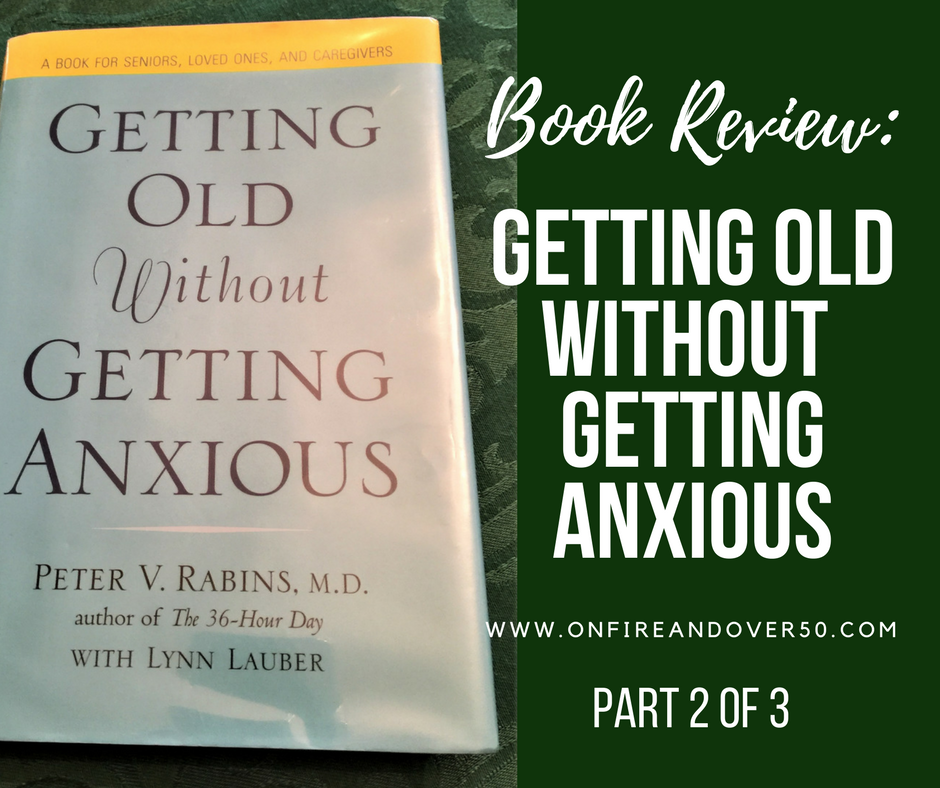depression and anxiety as we grow older.
You should find a copy and read the whole book,
it will be worth it.
Many people think that being old means being sad. This leads to depression in the elderly. Being a sad older adult does not have to mean being sad.
In many cultures across the globe, older people are taken care of by the family. They are encouraged to be independent as long as possible. As a result, there are fewer nursing and assisted living facilities (some places actually don't have any) and the elderly live longer and happier. Most of them live independent lives.
In America (and a few other places) the elderly are often considered useless and burdensome to most people. Younger people are often too busy with careers, hobbies, children, etc., to take elderly parents into their homes to live or to help them live on their own as long as possible. As a result, elderly Americans can often look forward to living their “golden” years in nursing or assisted living facilities alone and housed with strangers. Often with people with serious mental decline such as Alzheimers or dementia. Depression is common among America's seniors.
Symptoms of Depression:
- Sad or unhappy mood most days
- Lack of self-confidence, feelings of guilt, worthlessness, helplessness, etc.
- Most days experiences physical symptoms such as:
- Pain
- Dizziness
- Oversleeping
- Insomnia
- Low or no energy
- Poor Appetite
- Irritable
- Trouble Concentrating
- Loss of Interest in hobbies, social activities, etc.
What causes Depression?
- Illness – heart, pancreas, lungs, stroke, Parkinson's, Alzheimers
- Poor Diet – irregular meals, vitamin deficiencies (B Vitamins, Omega 3, etc.)
- Alcohol Sedatives – barbituates, Valium, Restoril to name a few
- Chronic Pain
- Social Isolation (loneliness)
- Genetics – Prone to Depression
- Trauma or Stress – traumatic events, stressful events
- Medications – Prednisone, Reserpine, Alphamethyl, Bensodiazepines (Valium, Xanax, Ativan)
Treatment Options:
- Psychotherapy – Depressed people often get locked into a habit of negative thoughts and simply need help to break this habit. Singular and/or group therapy is helpful.
- Medicine – SSRIs (Selective Serotonin reuptake inhibitors) Celexa, Lexapro, Prozac, Paxil, Zoloft, Effexor *mild) are a few, Other options: Eluvil, Totranil, Pumelor (Strollger), Herbal: St John's Wort, SAM-e.
- Electroshock Therapy (ECT)
- Aerobic Exercise
Remember, depression is not supposed to be automatic when you become a certain age. It can be caused from a number of things. Sometimes it is just the way we are looking at growing older. If we are ill or hurt, we still don't need to accept depression. Depression hinders your recovery from illness, injuries, and surgeries. Stay positive and if you can't do it by yourself, seek help.
I experienced a deep depression in my fifties. My children were leaving home and making a life for themselves. During this same time, I was going through menopause and that contributed to my problems. After several years, I found my way out of it. I had to make changes to my life. I had to change my thinking. Fortunately, I was able to find my own way out. If I had not been able to heal myself, I would have sought therapy.
If you are experiencing depression and you can't seem to get out of it, do not delay in getting outside help. Seek assistance from your medical doctor as soon as you can. Find out what is causing the depression and deal with it. Your life is too precious to waste feeling sad.
Have you ever been so depressed that you sought out help? Did you visit a therapist? If you recovered from your depression, what helped you do so? Do you have a friend or family member who suffers from depression? Have you tried to help them? Please share any tips or lessons you learned when helping someone else or helping yourself get out of the depression cycle.
XOXO

 RSS Feed
RSS Feed